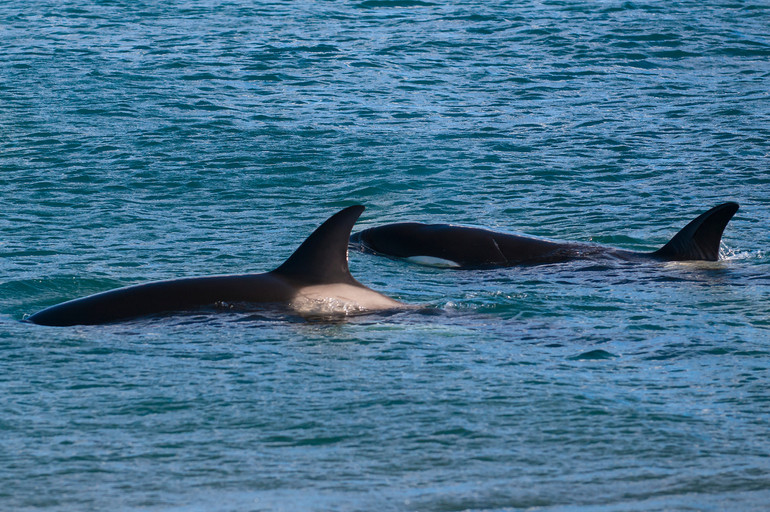Why a lone killer whale killed a great white shark in two minutes: research
[ad_1]
Why did a lone killer whale kill a great white shark
DHDeposit18/Depositphotos
On the coast of Cape Town, the capital of South Africa, a male killer whale single-handedly killed a 2.5-meter young great white shark in two minutes.
It happened on June 18, 2023, at a distance of 800 meters from the shore near Seal Island in Mossel Bay. Scientists have pondered for a long time about the reasons for this behavior of the animal.
They have their own conclusions published in African Journal of Marine Science, writes CNN.
“During two decades of annual visits to South Africa, I have observed the significant impact these killer whales have had on the local white shark population. Seeing a male killer whale carry a great white shark’s liver past our ship is unforgettable.
Despite my devout fear of these predators, I am increasingly concerned about the ecological balance of the coast”, says marine biologist from the Italian Center for the Study of Sharks and the University of Siena, Dr. Primo Micarelli.
Killer whales are very intelligent and social animals that usually hunt large animals in a group.
Orcas typically surround large prey such as sea lions, seals and sharks and use their combined intelligence and strength to attack, explained lead study author Alison Towner from Rhodes University. She studied these animals for 17 years.
From 2 to 6 killer whales usually participated in a two-hour hunt.
“This observation revealed evidence of solitary hunting by at least one orca, challenging the traditional cooperative hunting behavior known in the region.
This is a groundbreaking understanding of the predatory behavior of this species. The presence of killer whales hunting sharks may be related to broader ecosystem dynamics. The rapid development of this phenomenon will make it difficult for scientists to keep up with the timesTowner said.
On June 18, several scientists aboard the ship watched as a male killer whale grabbed the shark by its left pectoral fin and “pushed it forward several times before eventually gutting it.” He lost about two minutes on this.

Killer whales in the natural environment
FOTO4440/Deositphotos
Researchers suggest that killer whales first began targeting white sharks in 2015.
According to Towner, it was not until 2022 that an aerial photo captured the killer whales killing a great white shark for the first time.
“Although we do not have conclusive evidence about specific factors, the appearance of a pair of killer whales may be related to broader changes in the ecosystem. It is obvious that human activity, in particular commercial fishing, is putting a strain on our oceans.”– noted the scientist.
Killer whales are scaring off white shark populations, but researchers don’t know where the sharks are migrating.
“As they move, they can end up intersecting with intensive fisheries“, Towner added.
Scientists suggest that the kill by a lone killer whale was possible due to the smaller size of the great white shark.
Attack speed may reflect the killer whale’s skill and effectiveness as a predator. It may also be a response to the stress associated with hunting near shorelines in densely populated areas, the scientists said.
[ad_2]
Original Source Link











